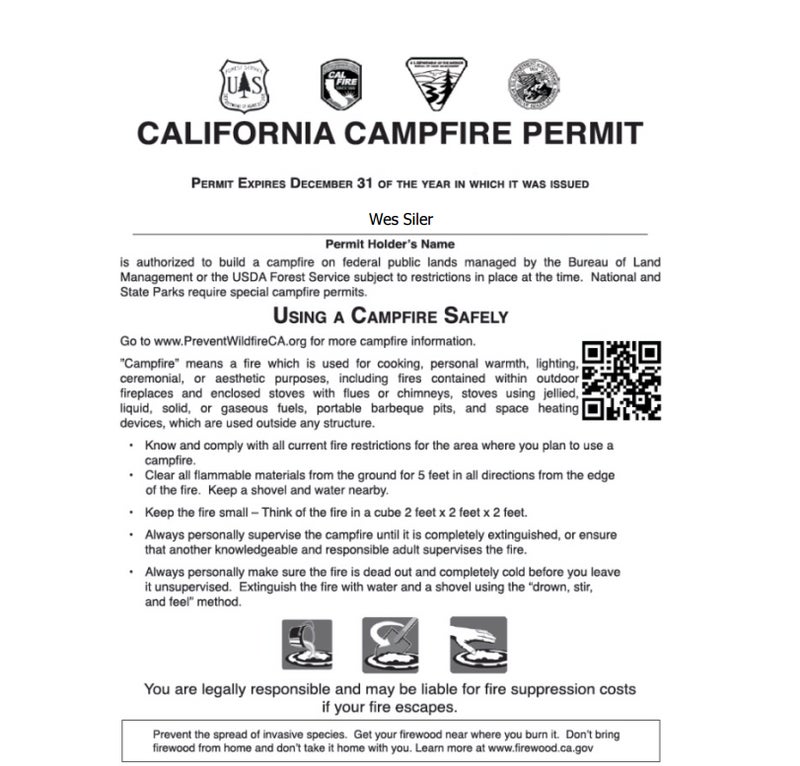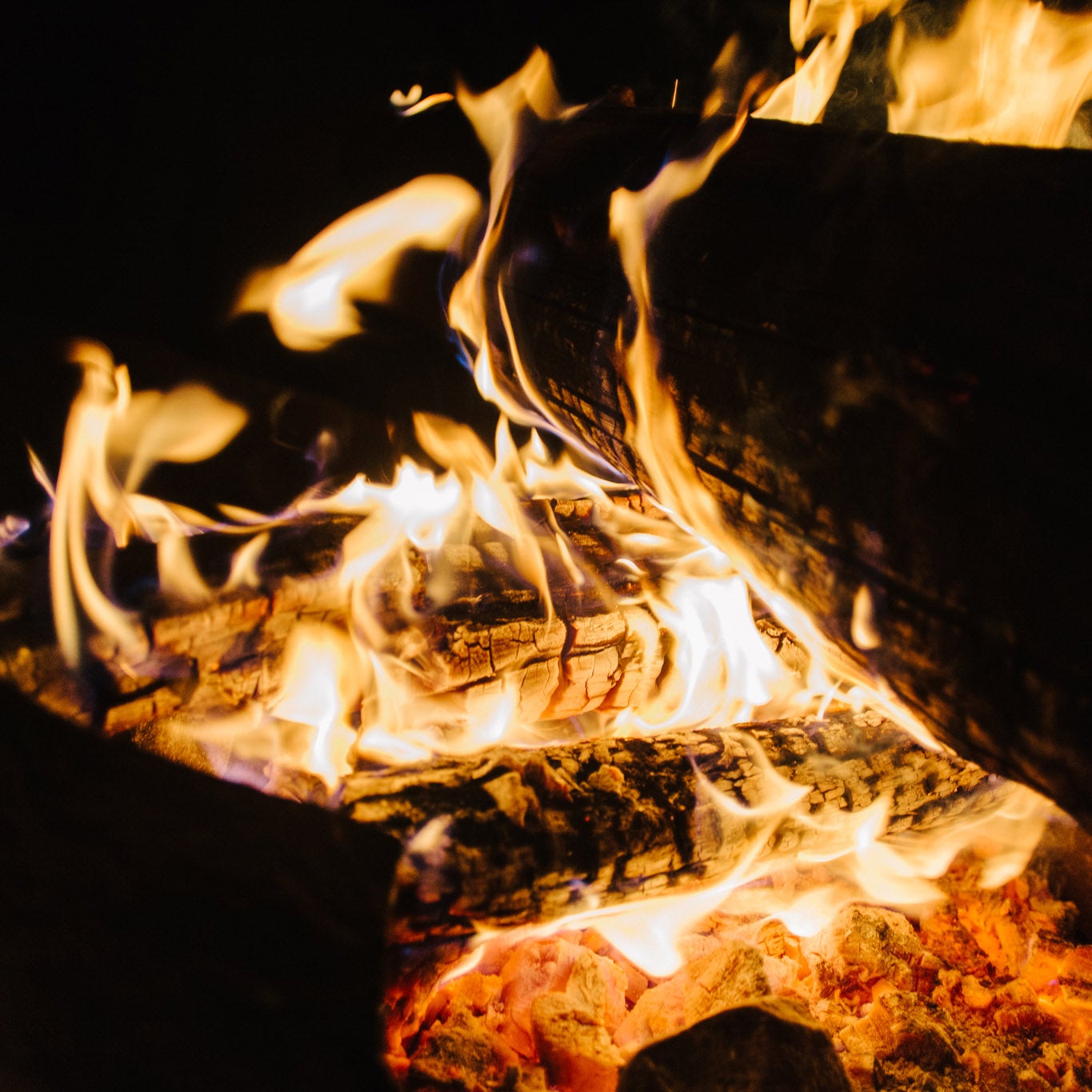Early on the morning of August 17, 2013, Keith Matthew Emerald found himself cold and hungry following a hunt in a remote section of the Sierra Nevada, near Yosemite National Park. So he did what countless generations of outdoorsmen before him have done—he started a campfire. Nine weeks later, the wildfire that resulted would finally be extinguished at a cost of $127 million. Scorching a total of 400 square miles, the Rim Fire was the .
Because a fire ban had been in place, , and because state and local governments have started holding individuals financially responsible for the massive costs of fighting wildfires, he also faced a nine-figure penalty.
IndefinitelyWild
 IndefinitelyWild is a lifestyle column telling the story of adventure travel in the outdoors, the vehicles and gear that get us there, and the people we meet along the way. Follow us on , , and .
IndefinitelyWild is a lifestyle column telling the story of adventure travel in the outdoors, the vehicles and gear that get us there, and the people we meet along the way. Follow us on , , and .Will you be able to enjoy a fire on your next camping trip? For residents of California, Oregon, and Washington, the likely answer is already no. For much of this summer, most wilderness areas in those three states were under a total campfire ban. ���ϳԹ��� of the metal fire rings in organized campgrounds, you could not have a fire on public land. With the West Coast’s drought thought to be long-lasting, next summer will see similar if not even further-reaching restrictions—especially as these states face massive shortfalls in firefighting budgets.
But the risk and cost of wildfires is only one nail in the campfire’s coffin. And that means they could also be at risk in areas less prone to conflagration. Let’s look at the problems campfires cause.
Pollution
Wood smoke contains fine particles of unburnt wood. That may not sound like pollution, but reduced in size to 2.5 microns or less, these microscopic particles Wood smoke also contains benzene, formaldehyde, acetaldehyde, acrolein, and polycyclic aromatic hydrocarbons (PAHs). In Washington, wood smoke creates an estimated 51 percent of the state’s fine-particle pollution in winter. Most of this is due to wood-burning stoves, but outdoor fires remain a significant contributor.
These toxic residues can also end up in water sources as fire ash leaches into the ground or is swept into them by rain.
Smoke from campfires can also lead to visible haze in high-use areas like the national parks.
Health Problems
As nice as we all think wood smoke smells, inhaling all of the above isn’t good for you. The list of effects wood smoke has on your health: irritated eyes, throat, sinus, and lungs; headaches; reduced lung function; lung inflammation and swelling; increased risk of respiratory disease; more severe and frequent symptoms from existing lung diseases; increased risk of heart attack and stroke; chronic bronchitis and emphysema; cancer.
Washington estimates that fine-particle pollution, which again is 51 percent wood smoke, causes in that state alone. The health problems it causes cost the state $190 million annually.
Litter
Campfires leave behind charred wood, piles of ash, and blackened rocks. People often use them to burn trash, which may only be partially destroyed, frequently leaving behind remnants of cans, bottles, plastic, and foil. This may not sound like a huge issue, but in high-use areas, fire rings and the aforementioned detritus quickly become blights on the natural landscape and create additional work for maintenance crews.
Tree Damage
We all know we’re supposed to harvest only dead, fallen wood for our campfires. But in large volumes, removing even that stuff can cause problems. Dead logs and other wood may be essential habitat for insects, birds, reptiles, and small mammals. Dead wood increases soil’s water-holding ability, and removing it may lead to erosion.
And we know that wood gathering frequently goes beyond the dead and the fallen. Visit any popular campsite and you’ll find trees denuded of low branches or scorched by nearby fires. In areas where plant growth is very slow—high alpine environments, deserts, arctic tundra—wood regeneration may not be able to keep up with campfire demand.
Invasive Species
Firewood that you harvest or buy like the . Moving firewood can introduce the beetles to a new environment and threaten native trees in that area. An act as simple as throwing a few logs from your backyard into the back of your truck and driving up to the mountains for a campout can cause irreversible damage to the environment you’re trying to enjoy.
Injury
There’s no national tally of campfire-related injuries, but found that 57 people were injured and one person was killed due to campfires in a ten-year period. And it’s not just ongoing fires that can injure people: after a fire is supposedly extinguished.
The Campfire’s Uncertain Future
I’m an odd person to be writing this article. To me, having a fire has always been a fundamental component of enjoying a night outdoors. I’ve been building campfires without incident or injury since I was a Cub Scout. The legality and ethics of fire making were never something I considered at all until I moved to California five years ago.
Here, the mere mention that you enjoyed a fire on a camping trip can lead to trouble, even when one is legally permissible, ethically built, and fully extinguished. A story I wrote about a backpacking trip friends and I took a couple winters ago drew criticism from readers in part because I mentioned splitting apart dead standing wood to access its dry insides during a rainstorm. That’s textbook bad-weather fire making, there was obviously no risk of wildfires during a very rainy winter, and we caused no damage to the local ecosystem by using a small amount of dead wood, yet an online firestorm still developed.
Camping with my group of local homeless kids this summer, a little fire-making class had to be conducted with store-bought firewood (that we probably shouldn’t have carried in from Los Angeles). It was of poor quality and difficult to light. But rather than just grab the combustible stuff laying all over the campsite, I had to explain to the group that gathering was prohibited in organized campgrounds. They got a poor lesson as a result of the rules.
And that got me thinking: perhaps the real lesson here is that the campfire has had its day. With massive wildfires raging all summer long and , and with participation in outdoor recreation booming to record numbers, maybe the the negative impacts of the campfire now outweigh tradition and comfort.
Is this attitude too risk averse or politically correct? Maybe, but our inability to enjoy campfires responsibly is inarguable——and this combines with the and other outdoor areas to create an understandable need for regulation.

Campfire Penalties
Ultimately, the charges against Emerald were dropped following the mysterious deaths of two key witnesses. That was a good result for him: for starting a fire in a restricted area, lying to investigators, and failing to control his fire, Emerald faced a maximum jail sentence of 11 years and a $500,000 fine in addition to the $127 million firefighting bill.
That’s obviously an extreme case and a huge wildfire. But don’t say it couldn’t happen to you. Simply leaving a fire unattended or having a fire in a restricted area in Arizona can incur fines of .
California defines some types of accidental fire-setting as arson. The penal code : “A person is guilty of unlawfully causing a fire when he recklessly sets fire to or burns or causes to be burned, any structure, forest land or property.” Penalties include up to six years in prison—and you’re held responsible for the costs of fighting the fire, even if those costs are in the hundreds of millions of dollars. Other states have similar laws.
Will I miss the ability to have a fire on most of the camping trips I take on the West Coast next summer? Definitely, but I’d miss the ability to visit those areas much more. Maybe even more than I’d miss $127 million.


